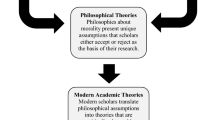Abstract
In The Second Person Standpoint, Darwall charges that all value-oriented foundations for ethics make a category mistake. Calling it Strawson’s point, he argues these foundations explain moral authority, which concerns whether someone has standing to hold another accountable, in terms of a value, which essentially concerns what makes the world go best. However, whether it would be good for me to blame you simply asks a different question than whether I have standing to blame you. I defend a valueoriented foundation for contractualism by identifying one way to overcome Strawson’s point. At bottom, Darwall’s objection relies on the assumption that all values are worldregarding. I argue that another class of values exists: second-personal values. Grounding morality in one of these values does not make the category mistake at the heart of Strawson’s point. In particular, I argue that grounding morality on one secondpersonal value, the ideal of acting justifiably towards others, better captures traditional contractualist ideals than Darwall’s formal foundation.
Similar content being viewed by others
Notes
Toni Rønnow-Rasmussen and Woldeck Rabinowicz (2000) defend the possibility of irreducible, final and non-intrinsic ends. While their discussion has a different focus, the project of this paper is very much in spirit of affirming the final value of a certain kind of relationship. For present purposes, three aspects of the discussion should be kept in mind. First, not all relational values are second-personal. Second, someone can do something for-the-sake-of-someone-else while treating them objectively, for example when caretaking. Third, the second-personal way of valuing a relation cannot be reduced to a first-personal or third-personal way of valuing even if the same relation can be valued first or third-personally. For more also see: Rønnow-Rasmussen (2002) and Rønnow-Rasmussen (2009).
Gary Watson (2007, p. 42) puts pressure on Darwall’s claim that having the capacity to issue a demand entails the ability to hold responsible.
This is similar to Watson’s point that Darwall’s move from morality as mutual accountability to morality as equal accountability adds substantive constraints.
Darwall is obviously against slavery. However, he takes this position to be a substantive claim that does not follow from his formal analysis.
References
Darwall S (2006) The second-person standpoint. Harvard University Press, Cambridge
Darwall S (2007) Reply to Korsgaard, Wallace and Watson. Ethics 118:52–69
Freeman S (1991) Contractualism, moral motivation, and practical reason. J Philos 88:281–303
Rabinowicz W, Ronnow-Rasmussen T (2000) A distinction in value: intrinsic and for its own sake. Proc Aristot Soc 100:33–51
Rønnow-Rasmussen T (2002) Instrumental values: strong and weak. Ethical Theory Moral Pract 5:23–43
Rønnow-Rasmussen T (2009) On for someone’s sake attitudes. Ethical Theory Moral Pract 12:397–411
Scanlon TM (1982) Contractualism and utilitarianism. In: Sen A, Williams B (eds) Utilitarianism and beyond. Cambridge University Press, Cambridge, pp 103–128
Scanlon TM (1998) What we owe to each other. Harvard University Press, Cambridge
Strawson PF (1962) Freedom and resentment. Proc Br Acad 48:1–25
Watson G (2007) Morality as equal accountability: comments on Stephen Darwall’s the second-person standpoint. Ethics 118:37–51
Acknowledgements
I extend special thanks to the members of Penn’s moral philosophy reading group, especially Adrienne Martin, Jeppe von Platz and Chris Melenovsky, for their helpful comments and to Stephen Darwall for a stimulating evening of conversation. I would further like to thanks those who attended the presentation of an earlier version of the paper at the 2010 Central Division Meeting of the American Philosophical Association, including Daniel Groll for his comments.
Author information
Authors and Affiliations
Corresponding author
Rights and permissions
About this article
Cite this article
Paletta, D. How to Overcome Strawson’s Point: Defending a Value-Oriented Foundation for Contractualism. Ethic Theory Moral Prac 16, 9–20 (2013). https://doi.org/10.1007/s10677-011-9328-1
Accepted:
Published:
Issue Date:
DOI: https://doi.org/10.1007/s10677-011-9328-1




